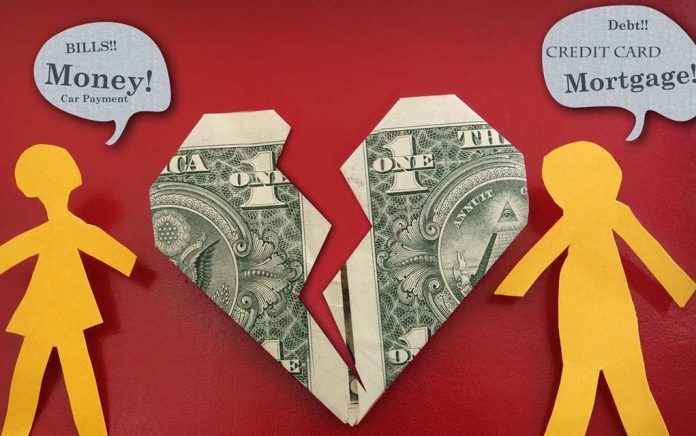
Going through a divorce can be one of life’s most challenging times. The fear of the unknown and learning how to live your life independently without your spouse may be paralyzing at times. While the lawyers work out the details, your focus should be on your financial health. Any credit woes you could be facing won’t get any better unless you tackle them head-on. Check out these ways to ensure your credit comes out smelling like a rose after your divorce.
Take a Close Look at Your Credit
To find out exactly where your credit stands, run your credit report and obtain your credit score. Do this for free at Credit.com. Dive in and take a close look at all your accounts, amounts and dates. Does everything add up? Or are there late payments or unfamiliar accounts? Now is the time to clear it up. Call the number listed on the report and provide the corrected info and documentation.
Who’s Paying What?
Even if your spouse is supposed to pay off that $14,000 credit card they’ve racked up under your name, it doesn’t mean they’ll do it. The divorce decree will likely point out specifics about who is responsible for each debt. Some accounts may need to be paid before the divorce is finalized. If an account is in your name and your spouse refuses to pay or makes late payments, it will affect your score. If that happens, be prepared to pay off the debt yourself.
What If You Can’t Afford Your Debt Load?
You’re finally divorced, but you’re straddling a large debt load. Now that you realize you only have one income, it may be impossible to pay. Your first step is to call your creditors and ask if they can rework the loans. In some cases, they may allow you to skip a few payments, or they might extend the length of the loan to lower the payments. This can help keep your overall credit in good standing.
Debt consolidation is another option. You may be able to get high-interest loans transferred to lower-interest finance terms. Bankruptcy should be a final option only if you’re overwhelmed and unable to pay back your debt.
What Not to Do
The worst thing you can do is bury your head in the sand. Your debt won’t go away; in fact, it will only get worse. Not paying will result in harsh debt collection, which will ruin your overall buying power. Get on the phone and call your creditors before they send your accounts to collection. Whatever you do, don’t apply for any new lines of credit. The goal is to gain back control of your finances, not dig yourself deeper into a hole.
Tackle It Head-On
To regain control of your credit and your financial health, you need to pay off all outstanding debt in your name. Two methods, the snowball and avalanche, are popular debt-tackling techniques implemented by financial guru Dave Ramsey.
With the snowball, you pay off your lowest credit card first. This gives you the ambition and motivation to tackle the next highest amount until everything is paid off. The avalanche is the opposite. Go after the highest credit card balance or highest-interest card first. Pay it off and then move on to the next highest. This approach will save you the most in long-term interest.
The road after a divorce is paved with a lot of unknowns. While you can’t change what life throws your way, you can take charge of your financial future. It may not be easy, but being responsible for your debt load will lead you in the right direction.
~Here’s to Your Success!
Copyright 2019, PowerInEmail.com


















